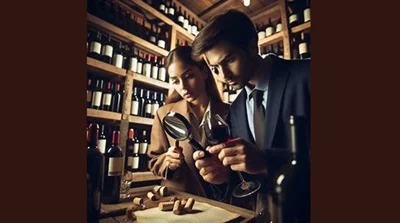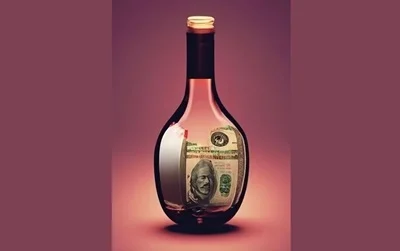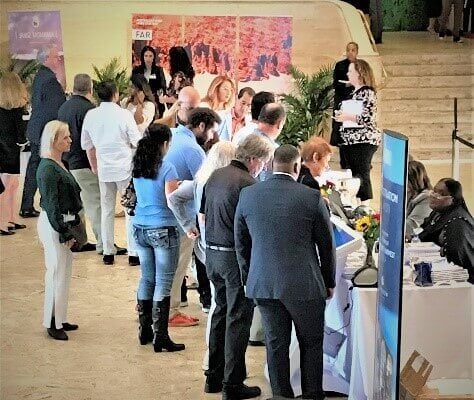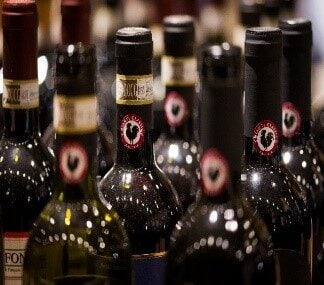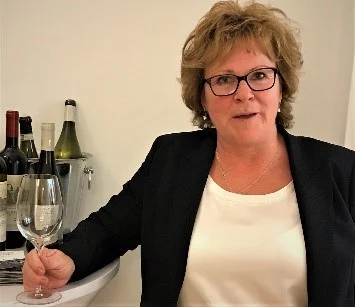There is an estimated US$64.9-billion-dollar value in the global wine counterfeiting market (2020).
Wine Counterfeiting
Genuine or authentic wines have recently become a multi-billion-dollar issue in the wine industry; therefore, validating the authenticity of wines before purchasing is crucial.
With the continuous expansion of the wine market, the business of wine counterfeiting follows in the same direction. The wine market was predicted to be $418 billion in 2020, and it was further estimated that almost a staggering 20% of all the wines traded globally are fake.
The concept of tampered or tainted wines is not something recent; it goes back to the very origin of wines with records suggesting it dates back to ancient times. The first instances of wine adulteration or counterfeiting are believed to have occurred in ancient Rome. Roman authorities recognized the issue of wine fraud as early as the 2nd century BCE. During this period, unscrupulous merchants would dilute wine with water, mix inferior wines with premium varieties, or use additives to mask poor quality.
One of the earliest known regulations to combat wine fraud was enacted under the reign of Emperor Domitian (81-96 CE). He issued edicts to control vineyard planting and wine production, aiming to maintain quality standards and prevent fraudulent practices.
Overall, wine counterfeiting has been a concern for millennia.
Driven by the high value and desirability of quality wines, ths has resulted in the birth of a completely new profession, and the “Wine physician” is tasked with scrutinizing wines to make sure they are authentic.
Wine Fabricators: Rudy Kurniawan and Hardy Rodenstock
Rudy Kurniawan, originally from Indonesia, gained notoriety for hosting extravagant parties and tastings featuring rare and elusive wines. During the period between 2001 and 2006, the value of old-world wine soared by 62%, and global auction sales surged from $90 to $300 million. Following an FBI investigation (2012), it was revealed that Kurniawan had been producing counterfeit wines in his residence, blending cheaper wines with older, more expensive ones to craft convincing fakes. He was arrested and subsequently convicted of multiple counts of fraud, resulting in a 10-year prison sentence. Upon his release and deportation to Asia, Kurniawan has transitioned into legitimate wine blending, claiming to operate within the bounds of the law.
Hardy Rodenstock is another well-known “alleged” wine counterfeiter. Hardy was a wine enthusiast, specializing in bottles that were ancient and rarer than rare. He was said to have had an almost supernatural intuition in sniffing out old and ultra-rare wines and holding sumptuous wine-tasting parties featuring these wines. He was involved in several high-profile instances of selling allegedly fraudulent bottles of wine, including purportedly rare vintages of Thomas Jefferson’s wine collection. These controversies stirred up significant debate and legal action within the wine community, but Rodenstock himself was not convicted of any crime related to these incidents.
Kieren Lau, a British wine merchant, received a 17-month prison sentence in 2018 for his involvement in a sophisticated counterfeit wine operation. Lau was implicated in the sale of fraudulent wines, which notably included counterfeit editions of some of the most prestigious and sought-after Bordeaux wines. The counterfeit wines were expertly produced to resemble the real high-end Bordeaux wines, deceiving buyers and collectors. His actions not only defrauded consumers but also potentially damaged the reputations of the wine producers whose labels were illicitly replicated.
Super Sleuth: The Sherlock Holmes of Wine
Maureen Downey, the person responsible for breaking the Rudy Kurniawan case, is an essential figure in the wine industry due to her expertise in wine authentication and her efforts to combat wine fraud.
Downey finds that the fake wine industry costs around $3 billion a year. Kurniawan alone cost the industry about $550 million. As a leading authority on wine provenance and authentication, Downey has played a crucial role in identifying counterfeit wines and exposing fraudulent practices within the wine market. Her work has helped to protect consumers, collectors, and the integrity of the wine industry as a whole.
Downey’s contributions have elevated awareness about the prevalence of wine fraud and the importance of rigorous authentication measures. Additionally, her insights and guidance have been invaluable in guiding collectors and industry professionals in making informed decisions about purchasing and selling wine. Overall, Maureen Downey’s impact on the wine world underscores the significance of authentication and transparency in preserving the integrity of wine commerce. She does her business by spotting odd wines and at the same time helps collectors make good bottle purchases.
© Dr. Elinor Garely. This copyright article, including photos, may not be reproduced without written permission from the author.
This is part 2 of a 4-part series.
Read Part 1 Here: Criminals Target Wineries and Vineyards

